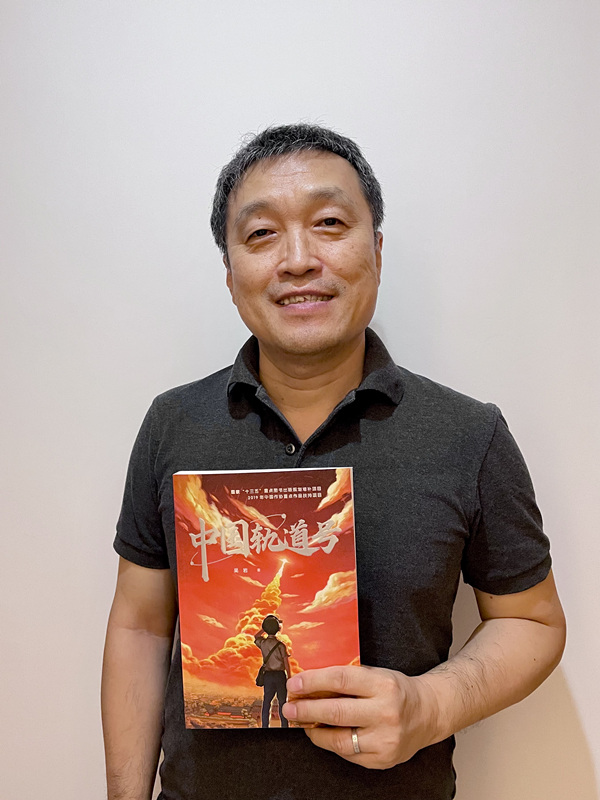Sci-fi writer wins China's top children's literature award
- By Zhang Rui
 0 Comment(s)
0 Comment(s) Print
Print E-mail China.org.cn, August 18, 2021
E-mail China.org.cn, August 18, 2021
Sci-fi pioneer, scholar and writer Wu Yan won this year's National Outstanding Children's Literature Award for his latest work "China Orbit" and he told China.org.cn that he's happy that his innovative approach was recognized.

Wu, also a professor from the Center for Humanities at the Southern University of Science and Technology, said he first had the idea for "China Orbit" two decades ago. "China Orbit" focuses on the development of the Chinese aerospace industry, and it was inspired by the planning and preparation for China's first but canceled manned spacecraft, "Shuguang 1," also known as Project 714, during the late 1960s and early 1970s.
"I collected many historical documents and stories and started writing decades ago," Wu remembered. At that time, the story was a tragic sci-fi epic aimed at adults. But later he dropped it due to various reasons, with one being a lack of confidence he could adequately portray the complexities of adult characters. Afterwards he engaged more in research and academic work rather than writing novels. However, in 2018 he was encouraged by his publisher to finish the book, and restructure it into a children's novel. He also wrote it as a tribute to the 50th anniversary of China's first entry into space.
Partly based on his own experiences in the 1970s, the book is a combination of reality and fiction, and is in some ways his own memoir infused with sci-fi. The innovative and unique writing method made his book stand out, while even stirring a debate on which genre to best categorize it, be it science fiction, popular science, bildungsroman, children's literature, military literature, or aerospace literature, highlighting the book's wealth of content and innovation.
His fellow prominent sci-fi writer Liu Cixin sees it more deeply, and believes "China Orbit" is not really children's sci-fi or popular science, as it's more complicated than merely a single genre. The "The Three-Body Problem" writer praised "China Orbit" as a unique science fiction novel that vividly depicts a child's real-life in a military compound of a specific era, showing a life in a state of scientific and technological imagination.
On Aug. 6, 2021, the 11th National Outstanding Children's Literature Award hosted by the Chinese Writers Association was announced in Beijing. A total of 18 works or articles were awarded out of a total of 636 submissions. Wu's win adds to the list of accolades he has won through years, including receiving the Thomas D. Clareson Award from the Science Fiction Research Association (SFRA) in 2020.
In Wu's opinion, a good children's sci-fi novel should have four features: it must be warm for kids, it must feature an encapsulating story to keep the child's attention, it must be very easy to understand in terms of science, and it must present dazzling and marvelous aspects of sci-fi. He believed China is a big market for children's sci-fi, but it still lacks extraordinary works.
He warned people to not try to earn quick money from sci-fi after "The Three-Body Problem" frenzy and movie blockbuster "The Wandering Earth" because Chinese sci-fi still has a long way to go. "We need to build Chinese science fiction step by step with an accumulation of really great works. We shall not copy others' success, we need to innovate, and treat sci-fi as part of building China's new culture."
In "China Orbit," he writes, "No matter what era you are in, you must be persistently loyal to your dreams." Wu noted this is from the bottom of his heart, "When we were young, we had a dream that people will be friendly and kind to each other in a world with advanced science and technology, as well as a prosperous culture. This dream still guides me to this day."






Go to Forum >>0 Comment(s)